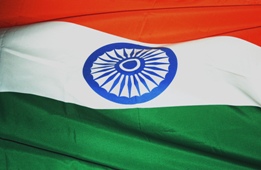 To check rampant under-nutrition and anaemia among women and children, the government approved on Wednesday the implementation of a Rs 1000 crore (Rs 10 billion) scheme for the welfare of mother and child.
To check rampant under-nutrition and anaemia among women and children, the government approved on Wednesday the implementation of a Rs 1000 crore (Rs 10 billion) scheme for the welfare of mother and child.
The Indira Gandhi Matritva Sahyog Yojana was approved by the Cabinet Committee on Economic Affairs on a pilot basis in 52 select districts for the remaining period of the XIth five year plan.
The scheme will be implemented by using the infrastructure, personnel, systems and structures of ICDS, including support of health systems along with the additional personnel on contractual basis as approved in the scheme.
The plan will be centrally sponsored with 100 per cent assistance from the Centre.
Accordingly, Rs 390 crore (Rs 3.9 billion) and Rs 610 crore (Rs 6.1 billion) have been allocated for 2010-11 and 2011-12 respectively, Union Home Minister P Chidambaram told reporters after the CCEA meeting.
Under the scheme, cash transfers will be made to all pregnant and lactating women as incentives based on fulfilment of specific conditions relating to mother and child's health and nutrition.
All government/public sector units (central and state) employees will be excluded from the scheme as they are entitled for paid maternity leave.
Each pregnant and lactating woman will receive a total cash incentive of Rs 4,000 in three instalments between the period from the second trimester of pregnancy to the child attaining the age of six months.
It is expected that in the initial years with cash incentives, around 13.8 lakh (1.38 million) pregnant and lactating women in 52
The beneficiaries would be pregnant women of 19 years of age and above for first two live births.
Each beneficiary will be required to open individual account in the nearest bank or the post office for cash transfer.
There will be steering and monitoring committees at all levels to oversee implementation and monitor the progress.
An IGMSY cell within the Ministry of Women and Child Development will also be set up.
The objectives of the scheme are to improve the health and nutrition status of pregnant, lactating women and infants by promoting appropriate practices, care and service utilisation during pregnancy, safe delivery and lactation.
High levels of under nutrition and anaemia among adolescent girls and women in the country are compounded by early marriage, early child bearing and inadequate spacing between births.
Improvement in nutritional status of women especially during pregnancy and lactation requires access to health care services, enhanced food and nutrient intake, family care, skilled counselling support and a hygienic environment which are essential for mothers.






 © 2025 Rediff.com -
© 2025 Rediff.com -